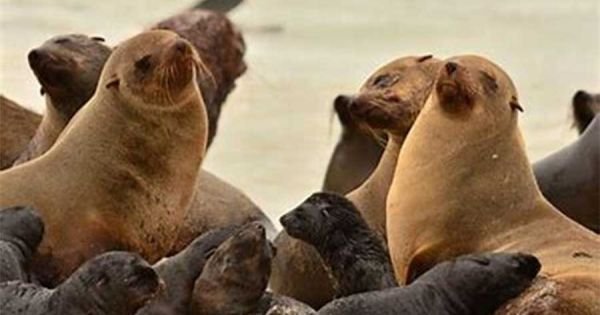Avian Flu: Uruguay admits burying 400 sea lions; but a similar number tested positive
[ad_1]
Avian Flu: Uruguay admits burying 400 sea lions; but a similar number tested positive
Sea lions are common mammals along the Uruguayan coast line
Uruguay has admitted that some 400 sea lions have died and have been buried in two meters deep graves, taking into account very special sanitary conditions to avoid contagion of the H5 virus or avian flu.
The head of Uruguay’s Aquatics Resources Jaime Coronel said that the disease has already been reported in Peru, Chile and Argentina and the avian flu finally has reached and has been reported in Uruguay.
Furthermore the tested species of the different colonies of Otaria Byronia along the Uruguayan coastline have tested 43% positive, which means the real number of dead animals could be closer to 800.
So far much more can’t be done, since the sea lions are feeding of dead or sick sea birds infected with the H5 virus.
There is no vaccine, there’s nothing to prevent the spread of the virus, that is why we are so meticulous in burying the carcasses to ensure as much as possible avoiding a repeat of contagion, explained Vet Carmen Leizagoyen head of the fauna department at the Environment ministry.
We are hoping that the same immunity system of the species at some point will help generating antibodies against the effects of the virus, added Vet Leizagoyen. We also need to have a clear idea of the virus sequence in our local colonies.
In other countries the death rate reported has been between 3% and 9% and ”in Uruguay we are close to those rates, hopefully the rate won’t exceed that percentage, but again we really don’t know how the H5 virus will evolve.
In the meantime a group of Uruguayan scientists and environmentalists attended a meeting in Paris of the World Organization for Animal Health, WOAH, for the first forum fully dedicated to the disease. The Forum served as a platform for international experts, private sector and government representatives to engage in discussions about the current challenges and perspectives for combating avian flu.
The rapidly evolving nature and the change in spread patterns have encouraged leaders and experts to review existing avian flu prevention and control tools, including the use of vaccines. Following the Forum, WOAH issued a comprehensive report capturing the discussions and outcomes. The Resolution notably underscores the importance of members respecting and implementing WOAH international standards to effectively combat avian influenza.
[ad_2]
Source link




